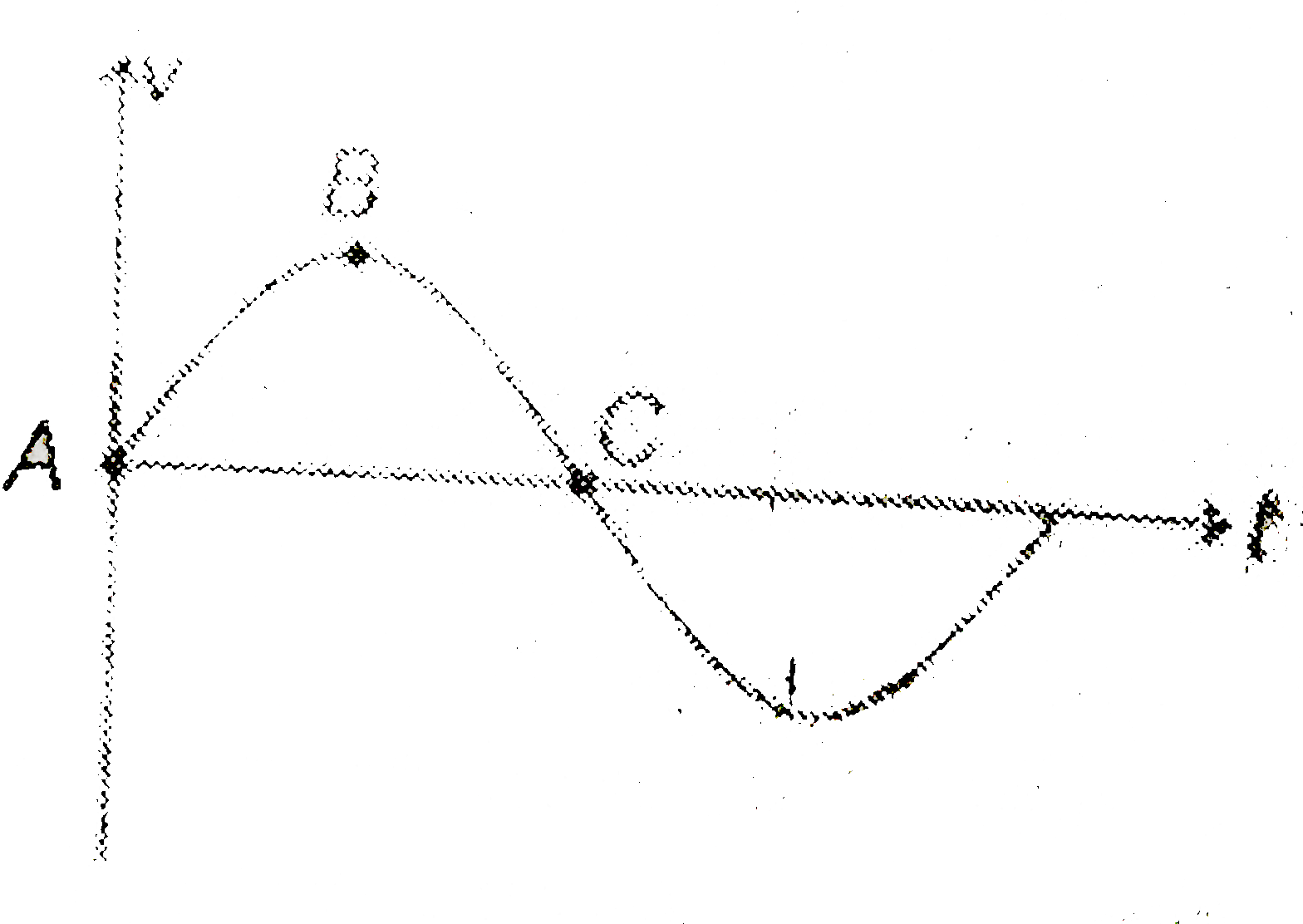Passage V) In SHM displacement, velocity and acceleration all oscillate simple harmonically with same angular frequency ω. Phase difference between any two is π2 except that between displacement and acceleration which is π.
Displacement -time equation of a particle is given as x=Asin(ωt+π6)−Acos(ω+π6), then:
the motion of the particle is not simple harmonic
at t=0, acceleration of particles is negative
at t-0, velocity of particle is negative
None of the above.
The correct Answer is:D
Step by step video, text & image solution for Passage V) In SHM displacement, velocity and acceleration all oscillate simple harmonically with same angular frequency omega. Phase difference between any two is pi/2 except that between displacement and acceleration which is pi. Displacement -time equation of a particle is given as x=Asin(omegat+pi/6)-A cos(omega+pi/6), then: by Physics experts to help you in doubts & scoring excellent marks in Class 11 exams.
Updated on:21/07/2023Topper's Solved these Questions
- SIMPLE HARMONIC MOTIONBOOK - DC PANDEYCHAPTER - SIMPLE HARMONIC MOTIONEXERCISE - Matrix matching type questions
13 Videos
- SIMPLE HARMONIC MOTIONBOOK - DC PANDEYCHAPTER - SIMPLE HARMONIC MOTIONEXERCISE - Integer type questions
14 Videos
- SIMPLE HARMONIC MOTIONBOOK - DC PANDEYCHAPTER - SIMPLE HARMONIC MOTIONEXERCISE - More than one option is correct
50 Videos
- SEMICONDUCTORS AND ELECTRONIC DEVICESBOOK - DC PANDEYCHAPTER - SEMICONDUCTORS AND ELECTRONIC DEVICESEXERCISE - More than One Option is Correct
3 Videos
- SOLVD PAPERS 2017 NEET, AIIMS & JIPMERBOOK - DC PANDEYCHAPTER - SOLVD PAPERS 2017 NEET, AIIMS & JIPMEREXERCISE - Solved paper 2018(JIPMER)
38 Videos
Similar Questions
Knowledge Check
Passage V) In SHM displacement, velocity and acceleration all oscillate simple harmonically with same angular frequency ω. Phase difference between any two is π2 except that between displacement and acceleration which is π.
v-t graph of a particle is SHM is as shown in figure Choose the wrong option.
 AAt A particle is at extreme positionBAt B acceleration of particle is zeroCAt C acceleration of particle is maximum and in negative direction.DNone of the above.
AAt A particle is at extreme positionBAt B acceleration of particle is zeroCAt C acceleration of particle is maximum and in negative direction.DNone of the above.The phase difference between displacement and acceleration of a particle in a simple harmonic motion is:
A3π2 radBπ2 radCZeroDπ radThe phase difference between the displacement and acceleration of a particle executing simple harmonic motion is
AzeroBπ/2CπD2π
The composition of two simple harmonic motions of equal periods at right angle to each other and with a phase difference of π result in the displacement of the particle along
View SolutionThe displacement of a particle making S.H.M. is given by x=6cos(100t+π4)m then the frequency is
View SolutionWhich of the following relationships between the acceleration a and the displacement x of a particle executing simple harmonic motion?
View SolutionIf x,v and a denote the displacement, the velocity and the acceleration of a particle executing simple harmonic motion of time period T, then, which of the following does not change with time ?
View SolutionStatement-I : In simple harmonic motion, the graph between velocity and the displacement is an ellipse.
Statement-II : In simple harmonic motion the phase difference between velocity and displacement is π/2.
View Solution
